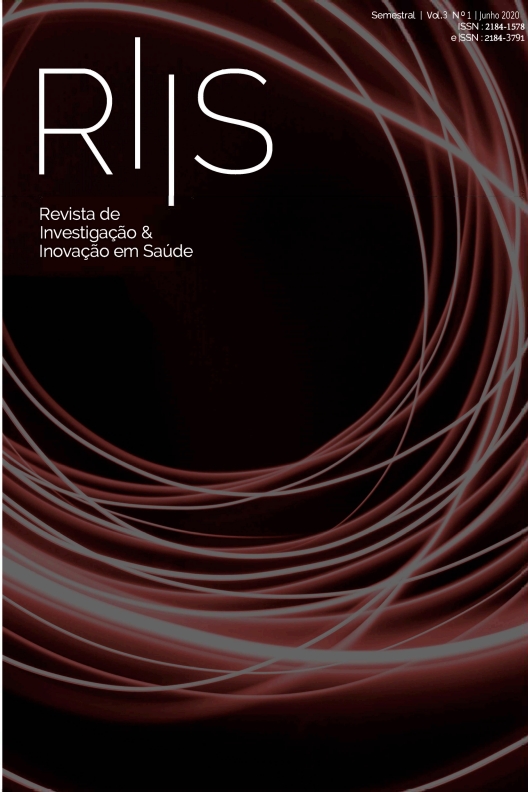Abstract
Background: in the context of an international public health emergency due to SARS-CoV-2, the suspension of presence teaching activities created a disruption to regular functioning of higher education institutions with impact on the academic community. Objective: to assess the impact of the COVID-19 pandemic on the academic and life path of students and their satisfaction with the measures adopted. Methodology: descriptive, exploratory study. Data collection by online questionnaire, centered on the conditions for distance learning, on the students' experiences and on the impact and satisfaction with the Contingency Plan. A non-probabilistic and convenient sample was used. Statistical analysis of the data according to the nature of the variables. Results: 264 students participated with average age of 28.2 ± 10.2 years. In general, they report very good conditions at home to implement distance learning (X=4,4±0,67,2−5). The majority (79.2%, n = 209) reported having participated in non-presence activities after activating the Contingency Plan. The impact analysis shows very high levels adequacy of educational platforms. There is also a high level of satisfaction with the information provided. Conclusion: the measures adopted were adequate and contributed to reduce the impact of COVID-19 on the teaching, learning and assessment process of students.
References
Brooks, S.K., Webster, R.K., Smith, L. E., Woodland, L., Wessely, S., Greenberg, N., & Rubin, G.J. (2020). The psychological impact of quarantine and how to reduce it: rapid review of the evidence. The Lancet, 395, 912-920. doi: 10.1016/S0140-6736(20)30460-8
Camacho, F., Fuly, C., Santos, C., & Menezes, F. (2020). Students in social vulnerability in distance education disciplines in times of COVID-19. Research, Society and Development, 9(7),1-12
Castaman, A.S., & Rodrigues, R.A. (2020). Educação a Distância na crise COVID - 19: um relato de experiência. Research, Society and Development, 9,(6), DOI: http://dx.doi.org/10.33448/rsd-v9i6.3699 1
Cheng, H., Jian, S., & Liu, D. (2020). Contact Tracing Assessment of COVID-19 Transmission Dynamics in Taiwan and Risk at Different Exposure Periods Before and After Symptom Onset. JAMA Internal Medicine. doi:10.1001/jamainternmed.2020.2020
Decreto-Lei n.º 10-A/2020, de 13 de março. (2020). Diário da República n.º 52/2020, 1º Suplemento, I Série. Presidência do Conselho de Ministros, Portugal.
Dotta, S., Jorge, C., Aguiar, É., Silveira, P. & Tedesco, R., (2013). Abordagem dialógica para a condução de aulas síncronas em uma webconferência. In: X Congresso Brasileiro de Ensino Superior a Distância, 2013, Belém. Anais do X Congresso Brasileiro de Ensino Superior a Distância. Belém: Unirede/UFPA
Escola Superior de Saúde Norte da Cruz Vermelha Portuguesa. (2020). Plano de Contingência COVID-19. Autor: Oliveira de Azeméis. Retirado de: https://www.essnortecvp.pt/pt/escola/covid-19/
International Association of Universities. (2020). Covid-19: Higher Education challenges and responses. Retirado de: https://www.iau-aiu.net/Covid-19-Higher-Education-challenges-and-responses
Santos, J.V.B., & Monteiro, J.C.S. (2020). Educação e covid-19: as tecnologias digitais mediando a aprendizagem em tempos de pandemia. Revista Encantar - Educação, Cultura e Sociedade - Bom Jesus da Lapa, 2, 01-15. DOI: http://dx.doi.org/10.46375/encantar.v2.0011
Sobral, S.R. (2020). O impacto do covid-19 na educação. Retirado de: https://observador.pt/opiniao/o-impacto-do-covid-19-na-educacao/
United Nations Educational, Scientific and Cultural Organization. (2020a). COVID-19 Educational Disruption and Response. Retirado de: https://en.United Nations Educational, Scientific and Cultural Organization.org/covid19/educationresponse
United Nations Educational, Scientific and Cultural Organization. (2020b). Adverse consequences of school closures. Retirado de: https://en.UnitedNationsEducationalScientific and CulturalOrganization.org/covid19/educationresponse/consequences
United Nations Educational, Scientific and Cultural Organization. (2020c). COVID-19: 10 Recommendations to plan distance learning solutions. Retirado de: https://en.United Nations Educational, Scientific and Cultural Organization.org/news/covid-19-10-recommendations-plan-distance-learning-solutions
World Health Organization. (2020). Coronavirus disease 2019 (COVID-19) Situation Report – 51. Retirado de: https://www.who.int/docs/default-source/coronaviruse/situation-reports/20200311-sitrep-51-covid-19.pdf?sfvrsn=1ba62e57_10
Zhang, J., Litvinova, M., Wang, W., Wang, Y., Deng, X., & Chen, X…. Yut, H. (2020). Evolving epidemiology and transmission dynamics of coronavirus disease 2019 outside Hubei province, China: a descriptive and modelling study. The Lancet Infectious Diseases. doi: 10.1016/S1473‐3099(20)30230‐9.
